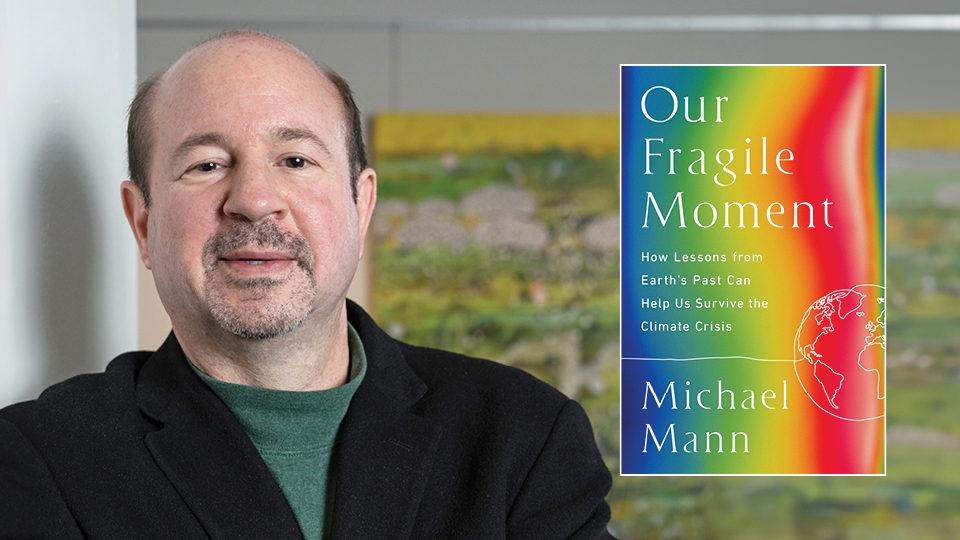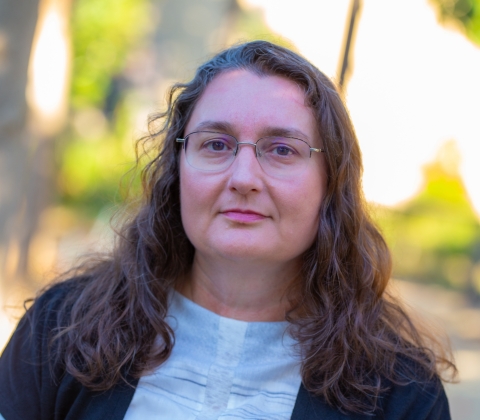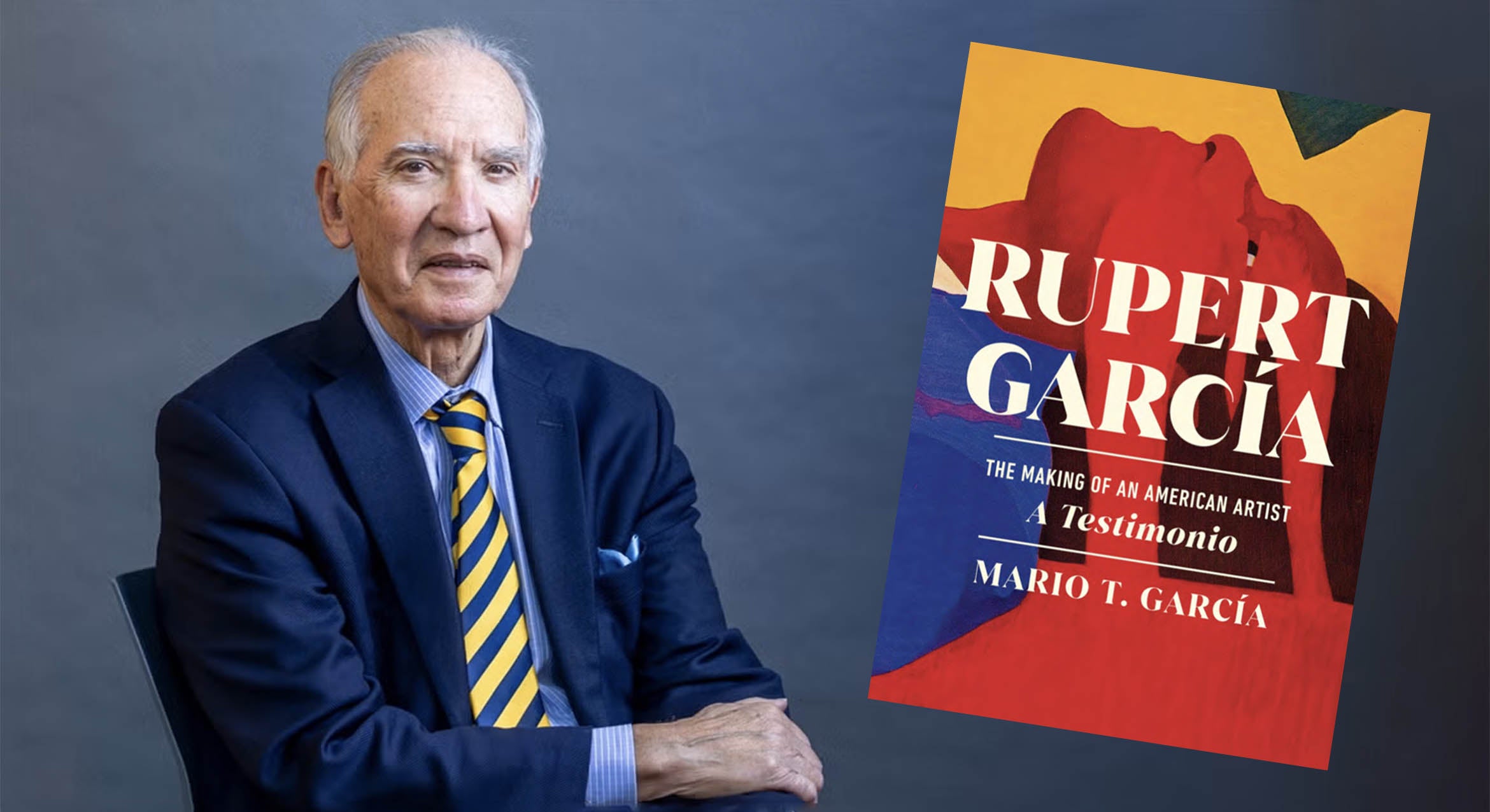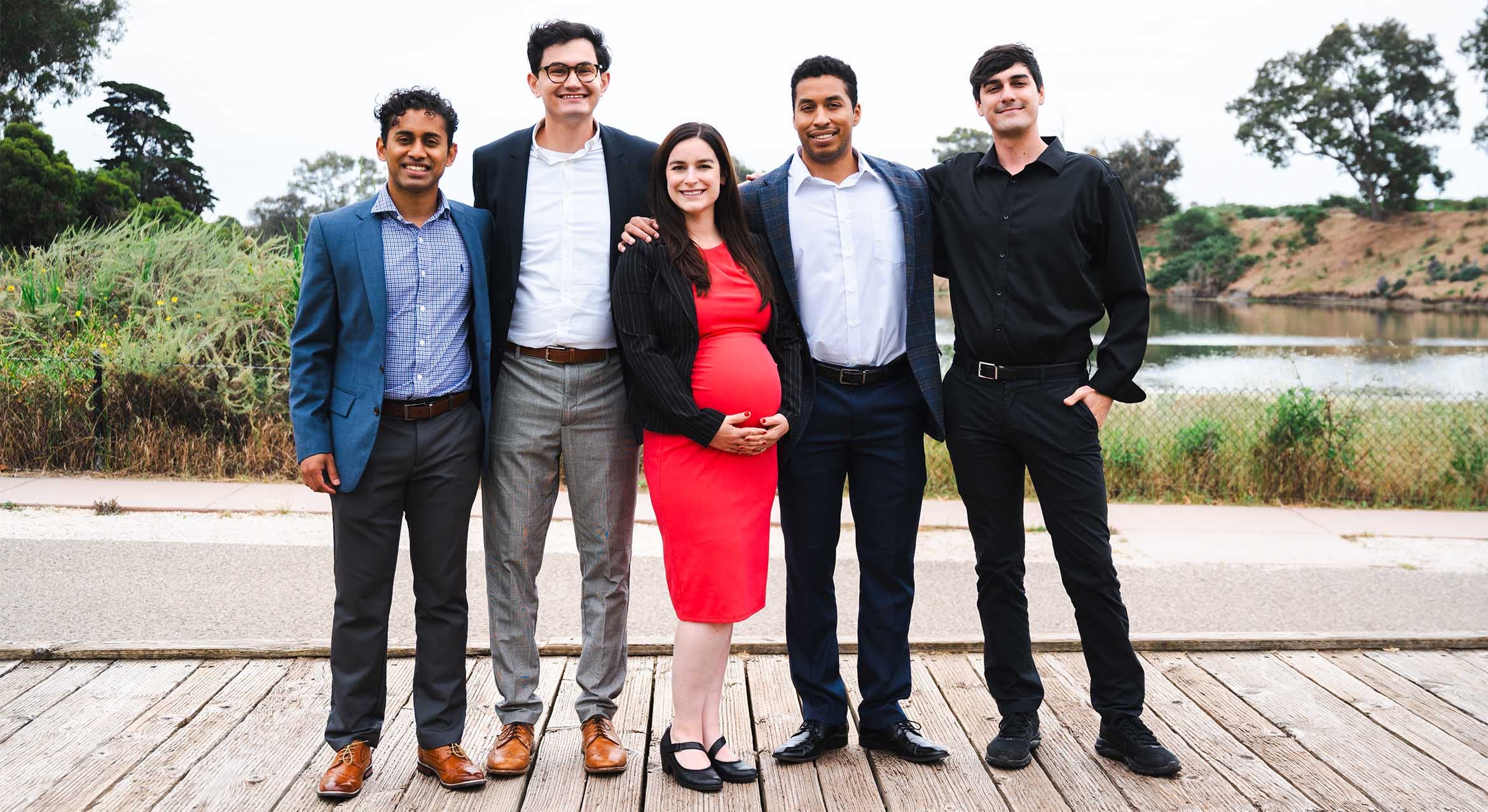Renowned paleoclimatologist Michael Mann on how to survive the climate crisis

Climatologist, geophysicist and author Michael Mann is a foremost expert on climate science and policy, and a staunch advocate for the use of scientific reason to chart a course for climate action. Using Earth’s deep climate history to reframe the problems of today, he combines urgency with agency, encouraging people to appreciate the gravity of the unfolding climate crisis while emboldening them to act before it truly does become too late.
Through six books, including his latest, “Our Fragile Moment: How Lessons from the Earth’s Past Can Help Us Survive the Climate Crisis,” Mann explains what the research means, how we should live and what we should demand of our leaders.
This week, arriving on the heels of a recent court victory in which two writers who accused him of research fraud were found liable for defamation, Mann will appear at UC Santa Barbara in a pair of free events, courtesy of UCSB Arts & Lectures.
From 2-3 p.m. Friday, Feb. 23, in Room 1101 of the Interactive Learning Pavilion, Mann will sit in conversation with Professor Eric Masanet, of UCSB’s Bren School of Environmental Science & Management, to discuss his life in climate science. Then, at 7:30 p.m. in Campbell Hall, he will give a lecture and participate in a discussion moderated by Professor Susannah Scott, chair of the UCSB Academic Senate and co-chair of the UCSB Campus Decarbonization Study Project (registration is recommended).
Together, the events help to launch that project as part of the Task Force for a Fossil-Free UC. UC Santa Barbara currently has the lowest carbon intensity operations among all 10 UC campuses, according to Scott, and is making plans to reduce its remaining CO2 emissions by 90% (relative to a 2019 baseline).
“In conjunction with our world-renowned climate and sustainability research and educational programs, our campus decarbonization project will demonstrate our leadership in achieving net zero operations,” said Scott, who co-chairs the project committee with Associate Vice Chancellor for Design, Facilities & Safety Services Renée Bahl. “We aim to follow the scientific evidence, modeled by distinguished paleoclimatologist Michael E. Mann and described compellingly in his new book, in planning responsibly for a more stable future.”
Mann is Presidential Distinguished Professor in the Department of Earth and Environmental Science at the University of Pennsylvania, with a secondary appointment in the Annenberg School for Communication. He is director of the Penn Center for Science, Sustainability and the Media. His research interests include the study of Earth's climate system and the science, impacts and policy implications of human-caused climate change.
In addition to his six books, Mann is the author of more than 200 peer-reviewed and edited publications, numerous op-eds and commentaries. He also is a co-founder of the award-winning science website RealClimate.org. He has received myriad honors and awards for his research contributions and for science communication, and is a fellow of the American Geophysical Union, the American Meteorological Society, the American Association for the Advancement of Science, and the National Academy of Sciences, among others. Well-known for his commentary in Leonardo DiCaprio's climate documentary “Before the Flood,” Mann also inspired DiCaprio's performance as astronomy professor Dr. Randall Mindy in the movie “Don’t Look Up.”
Mann’s appearance is presented by UCSB Arts & Lectures in association with campus partners including the Bren School of Environmental Science & Management, the Chancellor's Task Force on Sustainability, College of Engineering, College of Letters & Science, Decarbonization Study Project Committee, Environmental Studies Program, Institute for Energy Efficiency, Mellichamp Academic Initiative in Environmental Justice, Mellichamp Academic Initiative in Sustainability, and the Departments of Earth Science and Political Science.
Shelly Leachman
Editorial Director
(805) 893-2191
sleachman@ucsb.edu




